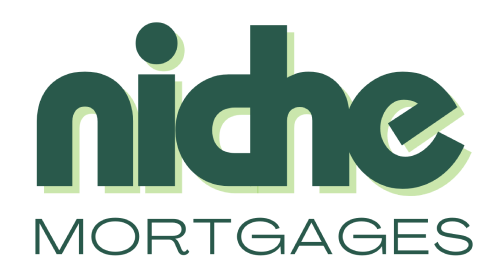Buying your first home is an exciting milestone, but understanding mortgages can feel overwhelming. For first-time buyers, navigating the process of securing a mortgage is essential to making informed financial decisions. This guide will walk you through the basics of mortgages, what to expect, and how to set yourself up for success as you take your first steps into homeownership. As a First-Time homebuyers follow our guide and you can get your new home without pressure!
What is a Mortgage?
A mortgage is a loan specifically designed to help you purchase a home. Since homes are significant investments, a mortgage allows you to spread the cost over many years, making the purchase more manageable. In exchange, you’ll make monthly payments that include the principal (the amount you borrowed) and interest (the cost of borrowing). Your home acts as collateral, meaning the lender can take ownership if you fail to make payments.
Types of Mortgages to Consider
For all of the first-time homebuyers, understanding the types of mortgages available can help you choose the one that best fits your needs:
- Fixed-Rate Mortgages: These mortgages have a consistent interest rate throughout the loan term, offering predictable monthly payments. They’re ideal for buyers who prefer stability and long-term planning.
- Variable-Rate Mortgages: With this type, the interest rate fluctuates based on market conditions. While they may start with lower rates, they carry the risk of increasing payments over time.
- Open and Closed Mortgages: Open mortgages offer flexibility to pay off your loan early without penalties, while closed mortgages typically have lower interest rates but limit early repayment options.
- Government-Backed Programs: Programs like Canada’s First-Time Home Buyer Incentive or the RRSP Home Buyer’s Plan provide financial support to eligible buyers, helping reduce upfront costs or offering tax benefits.
Getting Pre-Approved: Your First Step
Before house hunting, getting pre-approved for a mortgage is crucial. Pre-approval shows you how much you can afford and demonstrates to sellers that you’re a serious buyer. To get pre-approved, you’ll need to provide proof of income, employment, and financial stability. Once approved, you’ll receive a pre-approval letter stating your maximum loan amount and the interest rate you qualify for.
Understanding Down Payments
Your down payment is the initial amount you contribute toward purchasing your home. In Canada, the minimum down payment depends on the property’s price:
- 5% for homes under $500,000.
- 10% for the portion above $500,000 up to $1 million.
- 20% for homes priced over $1 million.
While these are the minimum requirements, a larger down payment can lower your monthly payments, reduce your overall interest costs, and eliminate the need for mortgage insurance.
Budgeting Beyond Your Monthly Payment
When planning for a mortgage, it’s important to budget for more than just your monthly payments. Additional costs to consider include:
- Closing Costs: These include legal fees, land transfer taxes, and inspection fees, typically amounting to 1.5% to 4% of the home’s purchase price.
- Property Taxes and Insurance: These ongoing expenses add to your monthly costs.
- Utilities and Maintenance: Homeownership comes with maintenance responsibilities and utility bills, so be sure to account for them in your budget.
How Your Credit Score Impacts Your Mortgage
Your credit score plays a significant role in your mortgage approval and the interest rate you’ll be offered. A higher score indicates financial reliability, giving lenders confidence in your ability to repay the loan. To improve your credit score:
- Pay bills on time.
- Keep your credit utilization low.
- Avoid opening new credit accounts before applying for a mortgage.
Why Mortgage Rates Matter
The interest rate on your mortgage affects how much you’ll pay over the life of the loan. Even a small difference in rates can have a significant impact on your monthly payments and overall cost. Compare offers from different lenders and consider working with a mortgage broker to find the best rate for your financial situation. You can also use a mortgage calculator to know more details.
Government Programs for First-Time Homebuyers
Take advantage of government programs designed to help first-time buyers. For example:
- First-Time Homebuyers Incentive: Reduces your mortgage amount by offering shared equity financing.
- RRSP Home Buyer’s Plan: Allows you to withdraw up to $35,000 from your RRSP tax-free to use toward your down payment.
These programs can make homeownership more accessible and reduce your financial burden.
Working with a Mortgage Professional
Navigating the mortgage process can be complex, especially for first-time buyers. A mortgage professional can guide you through the options, explain the fine print, and help you secure the best terms. Their expertise ensures that you make informed decisions and avoid common pitfalls.
Ready to Take the First Step Toward Homeownership?
First-time homebuyers should understand the basics of mortgages, including types of loans, pre-approval, and down payments. Budgeting for additional costs, improving your credit score, and taking advantage of government programs can make the process smoother. Working with a mortgage professional can provide expert guidance and ensure you secure the best terms.
If you’re ready to explore your mortgage options, Contact Niche Mortgages today. Our team of experts is here to guide you every step of the way, helping you secure the financing you need to make your dream home a reality!
About the Author

Jonathan Yien
Jonathan Yien is a seasoned mortgage broker at DLC Clear Trust Mortgages with a rich background in financial advising from his time at TD Canada Trust. He is dedicated to helping clients achieve their financial and homeownership goals.

